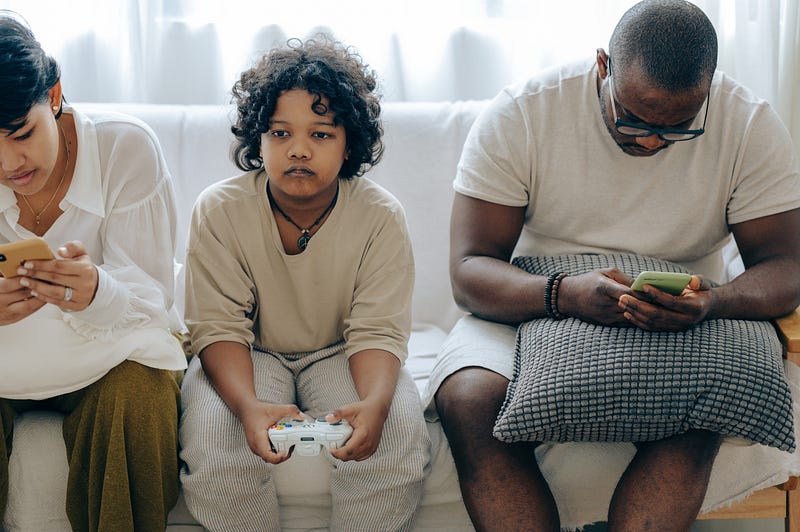Navigating the Complex Relationship Between Mental Health and Gaming
Written on
Understanding Gaming Addiction
Digital gaming has become an integral part of many lives, but it can lead to emotional strain and cognitive decline if individuals become overly reliant on it.

The Importance of Recognizing Gaming Disorders
Gaming can affect the brain similarly to other addictive behaviors. While playing can be enjoyable and beneficial for cognitive development, an unchecked gaming addiction can induce stress and disrupt mental health.
Withdrawal symptoms, such as anxiety and irritability, often manifest when individuals attempt to cut back on gaming. The World Health Organization (WHO) formally recognized "gaming disorder" in its International Classification of Diseases, highlighting the need for awareness and intervention.
WHO defines gaming disorder as a pattern of gaming behavior characterized by a lack of control over gaming and a prioritization of gaming over other aspects of life, often leading to negative consequences.
According to WHO guidelines, a diagnosis requires significant impairment in various life areas for at least 12 months.
Reflecting on Past Experiences
My first encounter with gaming was with Tetris in the mid-1980s. This simple game, requiring players to sort falling blocks, became addictive as PCs transitioned to color screens. Initially, I played during breaks, but over time, my gaming sessions extended into the early morning hours, leading to sleep deprivation.
This experience was shared by many of my colleagues, revealing the widespread impact of gaming addiction, even among educated professionals. We often laughed off the situation, but the reality was concerning for our mental well-being.
With time, I learned to manage my gaming habits by setting strict time limits, which helped alleviate the stress associated with excessive gaming. My interest in the psychology of addiction led me to study cognitive science, where I uncovered valuable insights regarding the brain's response to addiction.
Insights from Research
During my studies, I learned about the detrimental effects of trauma on mental health and its potential role in fostering addictive behaviors. Trauma can stem from negative experiences or a lack of positive reinforcement in childhood.
For example, unresolved childhood traumas can lead to a heightened susceptibility to addiction, as I discovered in my own life. After undergoing therapy, I noticed a significant reduction in my addictive tendencies.
Today, I continue to explore how gaming can be beneficial when approached mindfully. While video games can enhance cognitive reserves, they can also lead to mental fatigue and stress if not managed properly.
The Consequences of Excessive Gaming
In 2007, I conducted an experiment analyzing the effects of intense gaming on my health. After a week of excessive play, my cortisol levels significantly increased, impacting my sleep and focus. This experience reinforced the importance of moderation in gaming.
Excessive gaming can lead to mental fatigue, highlighting the need for balance in our gaming habits.
Strategies for Healthy Gaming
To avoid the pitfalls of gaming addiction, we must recognize the signs, such as prioritizing gaming over responsibilities and using it as an escape from negative emotions.
It's crucial to schedule gaming sessions and adhere to those limits. Cognitive Behavioral Therapy (CBT) has proven effective in addressing addictive behaviors. Keeping a journal of our gaming experiences can also provide valuable insights.
Mindful gaming practices can help manage stress and reduce addiction risk. Enjoying gaming in moderation can activate brain regions without overwhelming them.
In summary, while gaming can be an enjoyable and beneficial activity, it is essential to approach it with caution to maintain mental health.
12 Ways Gaming Harms Your Life - YouTube
This video explores various adverse effects of gaming on mental well-being and provides insights on how to mitigate them.
Why Gaming Addiction Is On The Rise - YouTube
This video delves into the growing concern of gaming addiction, examining its causes and potential solutions.
Final Thoughts
Addressing gaming addiction is crucial for maintaining mental health. By understanding our relationship with gaming and implementing mindful practices, we can enjoy gaming as a healthy hobby rather than a detrimental habit. Thank you for engaging with this discussion, and I wish you all a balanced and fulfilling life.